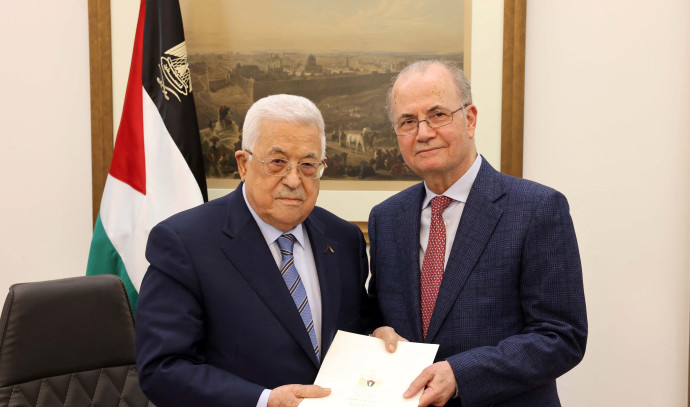The Jewish population of Syria, which stood at 100,000 at the start of the 20th century, now consists of just nine individuals. In an interview with The Media Line, Bakhour Chamntoub, a Jewish resident of Damascus, described the history of Syria’s Jewish community and his own refusal to leave his home.
Chamntoub has lived in Damascus since birth. His relatives now live in the US, Israel, and Mexico. Their decision to leave Syria is common to nearly all of the country’s Jews.
Before dwindling to its current size, Syria’s Jewish population comprised two distinct groups: those whose families lived in Syria since ancient times and those whose families came to Syria in the 16th century after the fall of Andalusia and the expulsion of Jews from Spain. Jews in Syria were primarily located in the Syrian capital, Damascus, the northern city of Aleppo, and the northeastern city of Qamishli. Others resided in the coastal city of Latakia.
According to the professor of philosophy Mohammad Jamal Tahan, the emigration of Syrian Jews started in earnest at the beginning of the 20th century. Once the state of Israel was established in 1948, Jews were banned from leaving the country.
In the mid-20th century, Tahan said, many Jews worked in banks in Damascus and Aleppo. In the 1960s and 1970s, the Ba’ath Party began taking control of the banks and carried out a systematic campaign of antisemitism. That led many Jews to seriously consider fleeing, often in clandestine operations.
Mahmoud Hamam, a lawyer from Aleppo, said that many of Aleppo’s synagogues were destroyed following a project launched in 1981 to redevelop the area of one of the city’s ancient walls.
Only in 1992 were Jews allowed to leave Syria. At that point, the majority of the remaining Jews left the country for good.
Many Syrian Muslims report having positive relationships with Jews before the mass emigration. Aref al-Ladqani, a Muslim resident of Damascus’s Jobar neighborhood, which had a significant Jewish population, said that Jews and Muslims in the neighborhood didn’t discriminate against one another.
“We lived with the Jews in Jobar like family,” al-Ladqani told The Media Line. “My grandmother used to tell us that on Saturdays, they wouldn’t light fires, so they would call on her to light the fire and assist them. They were family, friends, and companions.”
Abdul Muein Debbas, another Muslim resident of Jobar, told The Media Line that none of the Muslims in Damascus objected to the Jews’ presence.
“Visits between Muslim women from Jobar and Jewish women from the neighborhood were normal, according to the traditional Damascene customs,” another Muslim resident of Damascus said.
Difficulties of daily life
Some media reports claim there are only four Jews left in Syria, but Chamntoub said that nine Jews are still in the country, all of whom are elderly but in good health. The Media Line tried to speak with the other Jews, but they refused, citing instructions from their rabbis who were based abroad.
Chamntoub said that since public Jewish prayer requires the presence of ten adult men, the Jews of Syria pray privately.
He explained that he eats kosher meat from his family in the US. He noted that his relationships with his Arab and Palestinian friends are excellent.
Life in Syria has improved since the fall of the Assad regime, Chamntoub said. “We didn’t even speak to each other,” he said of Syria’s Jews during President Bashar Assad’s leadership. “It was a security regime by all means.”
On the other hand, Rabbi Elie Abadie, a senior rabbi emeritus in the United Arab Emirates whose family fled Syria before he was born, told The Media Line that Assad protected Syria’s Jews. “During the civil war in 2012, no Jew was killed intentionally, not by the rebel side, and not by the government side,” he said.
They have been living in Syria for several centuries.
“My parents escaped Syria after the establishment of the State of Israel as they were prohibited from leaving the country,” he explained. “Practically, the entire Jewish community became prisoners in that country. My parents escaped, as many other Jewish families tried to escape; some of them succeeded, some of them did not.”
“They found a haven in Lebanon, as at that time, Lebanon was under a French mandate, and it was more of a Western-oriented country with certain freedoms.”
With the onset of the Syrian revolution, the Assad regime used airstrikes to target residential areas in the country.
When The Media Line spoke to Abadie, he noted five or six synagogues in Damascus, including one that his grandfather built.
Abadie said that he reached out in 2012 to the rebels holding the synagogues, asking that they protect the buildings. In 2013, the rebels holding the Jobar synagogue asked for Abadie’s help in freeing 450 prisoners held by Assad, offering to protect the synagogue in return. Abadie said he offered to provide blankets and other items instead but that his offer was rejected.
At the time, he thought, the synagogues were all closed and safe. However, A recent visit to the Jobar synagogue revealed destruction on all sides. The Media Line’s correspondent in Damascus tried to enter the synagogue, but the residents of Jobar advised against entering for fear of mines.
According to the Syrian opposition, the regime destroyed the Jobar synagogue, one of ten synagogues in Damascus, and various individuals then looted and vandalized the building.
“It’s sad to see what happened to it all,” Abadie said of the Jobar synagogue. “I don’t know what happened to all the Judaica. Some of it dates back hundreds if not thousands of years.”
When asked about the state of Jewish burial sites in Syria, Abadi said here is an ancient Jewish cemetery.
“I don’t know; however, it’s a state of affairs,” he continued. “I’m sure Bakhour Chammantob will know.” When asked by The Media Line, Chamntoub said that Damascus’s one Jewish cemetery is unharmed and is regularly visited. Synagogues are preserved but need restoration, he said, and the Jewish school is closed because few people attend.
He also noted that he had visited the Jobar synagogue and would restore it.
Writer Nadine Kanaan said that manuscripts ranging in age from 700 to 1,000 years have been found in Syrian synagogues. The manuscripts are thought to have been brought to the country by Jews on their way to Syria.
In 2018, Turkish police arrested several suspects in connection with the theft and smuggling of manuscripts from the Jobar synagogue. Suspects were caught trying to sell Torah manuscripts engraved on deerskin and embroidered with gold, emeralds, and rubies for the equivalent of $2 million.
Turkey didn’t identify the organization with which the suspects were associated. According to Rami Abdulrahman, the director of the Syrian Observatory for Human Rights, residents of Jobar accused the Al-Rahman Legion rebel group of being behind the looting.
Following the fall of the Assad regime, Chamntoub said, the new government reached out to Syria’s Jews and allowed them to check on their property. Natan al-Dankouri, a Jew from Damascus who fled to Israel in 1992, told The Media Line he plans to return to Syria soon to check on his properties.
Chamntoub has not visited Israel, although he knows Hebrew. Travel to Israel has been illegal for Syrians for decades.
He said that the new government told him he was allowed to visit the Jewish State and free to communicate with relatives and friends from around the world.
Praising the new government, Chamntoub expressed the hope that all Jews of Syrian descent would come to visit the country to relive their memories.
On the other hand, Rabbi Abadie expressed a more cautious outlook on the new Syrian government. “We cannot pass judgment for the next six months,” he said. “I’m not exhilarated. I hear of hangings and then hear positive messages.”
Felice Friedson contributed to the report.







